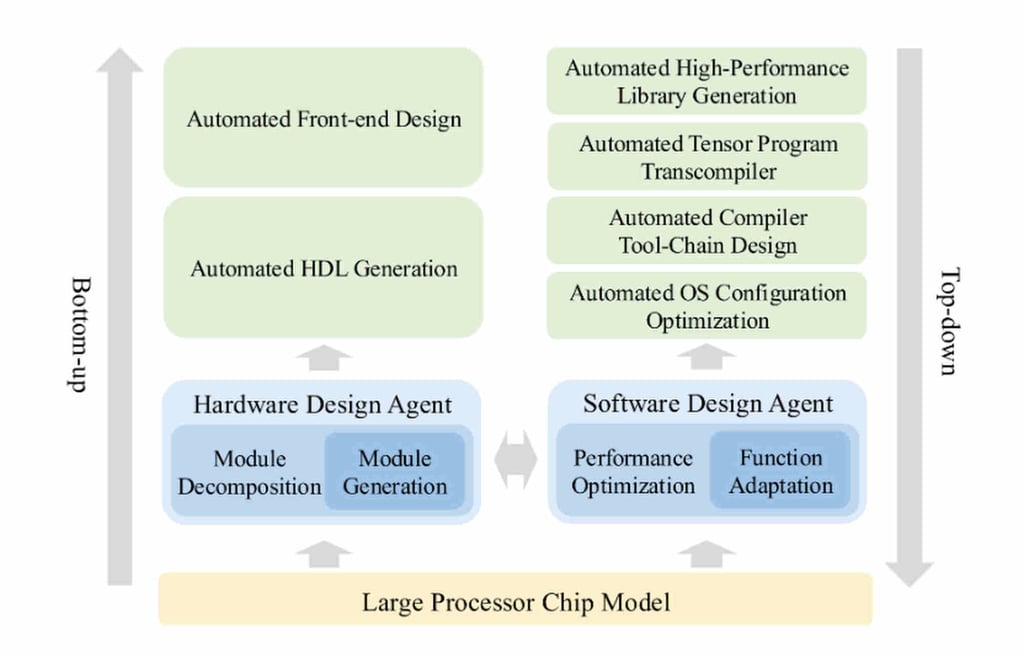The Chinese Academy of Sciences (CAS), the nation’s premier science institution, has unveiled a chip design system driven by artificial intelligence (AI) that has the potential to significantly accelerate semiconductor development and replace human programmers.
Advertisement
Developed by the State Key Laboratory of Processor and the Intelligent Software Research Centre, both under CAS, and the University of the Chinese Academy of Sciences, the fully automated integrated circuit design system is called QiMeng, which means “enlightenment” in Chinese.
The system uses large language models – the technology underpinning advanced AI chatbots. Details were published in a research paper last week and open-sourced on GitHub.
According to the developers, chips designed by QiMeng match the performance and efficiency of those created by human experts. A customised autonomous-driving chip, for example, which might take weeks for a team of human developers to create could be accomplished by QiMeng in just days, according to the team.

The unveiling of QiMeng comes as the US has pressured leading electronic design automation (EDA) software suppliers to halt sales of chip design tools to China, further complicating Beijing’s goal to strengthen its semiconductor industry.
Advertisement
QiMeng comprises three interconnected layers: at the base is a domain-specific large processor chip model; in the middle, a hardware and software design agent; and at the top, various processor chip design applications.

